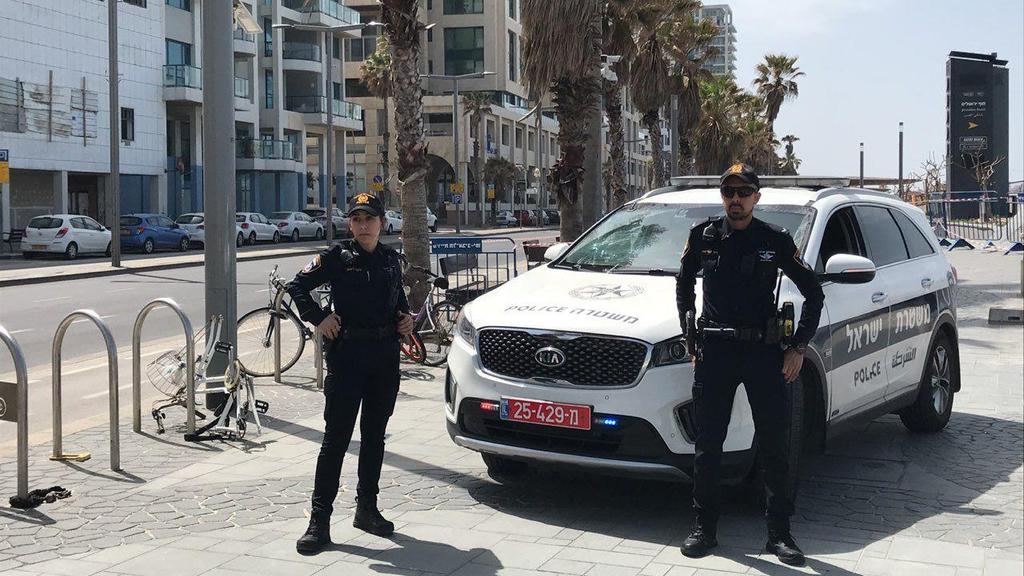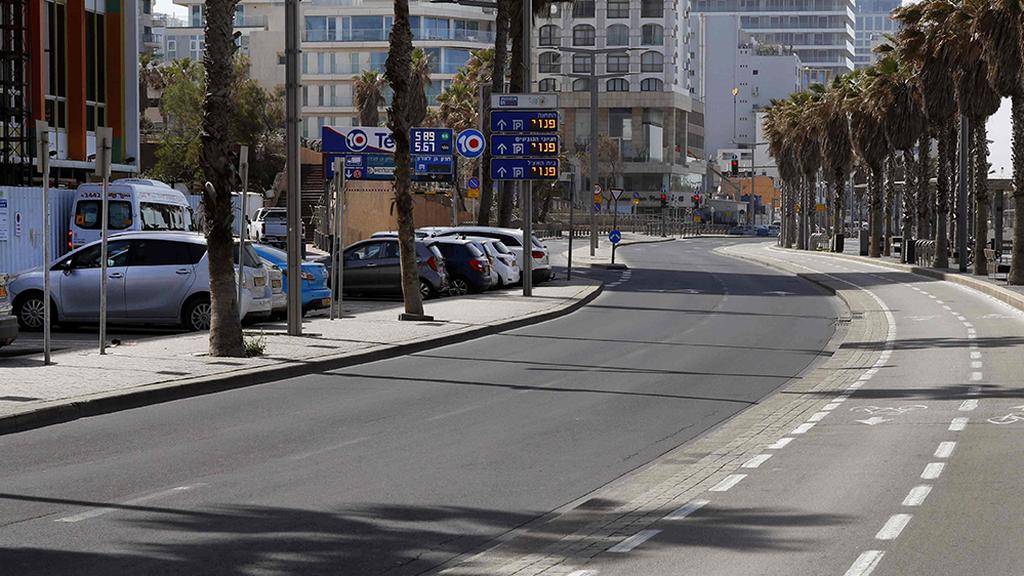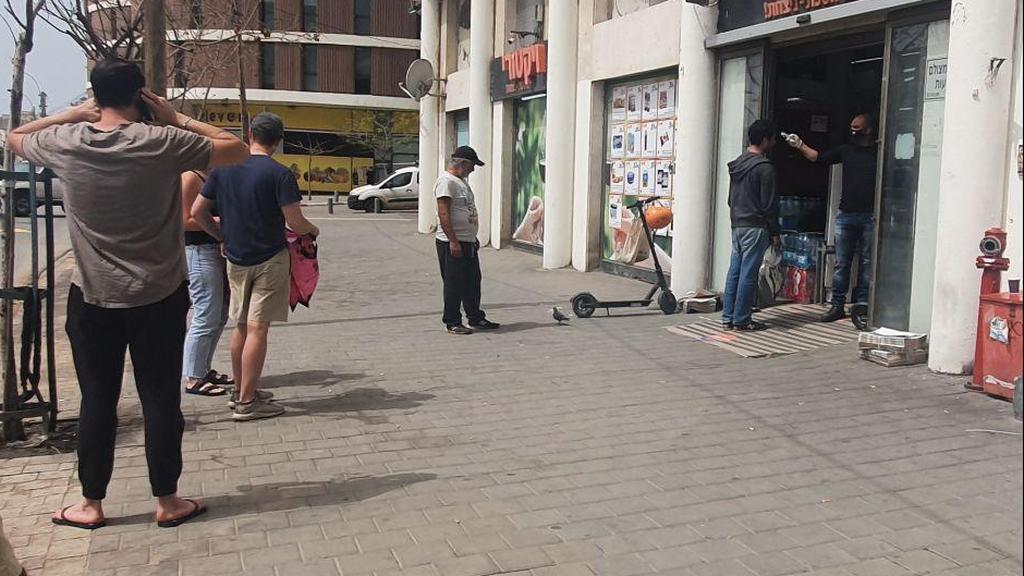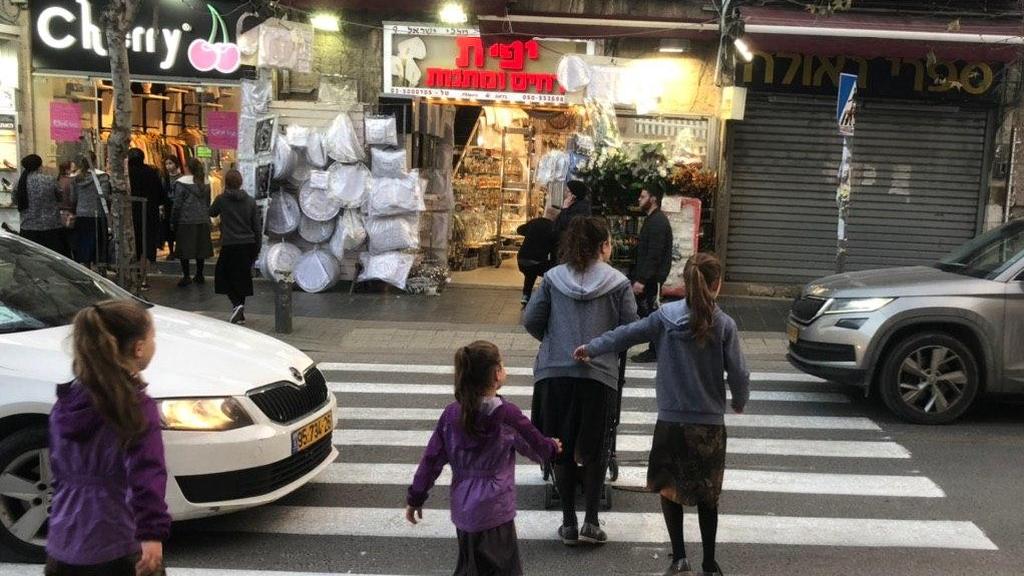Getting your Trinity Audio player ready...
The government is expected to convene for a special meeting on Sunday, to discuss further tightening of restrictions meant to combat the spread of coronavirus. Sources said the new measures will effectively result in a lockdown of Israeli economy for at least three weeks.
So far, the virus has claimed the lives of 13 Israelis, with the total number of cases currently standing at 3,619 people. At least 54 patients are described to be in a condition.
Prime Minister Benjamin Netanyahu apparently said in consultations Friday that if there is no visible change in the daily rate of newly infected Israelis, there will be no choice but to impose a complete closure as of Monday that would last at least until the end of Passover.
Netanyahu apparently instructed ministers and health officials to present the cabinet with new plans to restrict all movement within 48 hours in what he termed a "differential lockdown."
"I want this to be in effect for three weeks, until after the Passover holiday and I will consider the numbers each week. If they show a decline in infected cases I will consider lifting some restrictions on the work market," the prime minister said in the four-hour meeting.
Under the latest proposal, the number of "essential" workforce would decrease from the current 30% to 20% though Netanyahu is asking for a reduction to 15% or perhaps even 10%. This will include the public sector.
A senior source said vital sectors will still be working so there is a sense that the market will not be shut down completely though its activity will be reduced to the bare minimum with consideration of economic repercussions.
Minister of Internal Security, Gilad Erdan said he is concerned about the holiday, "People will want to see their families and stock up before the Seder so there will be violations of orders and crowds outside," he warned.
Both the Passover and Ramadan holidays will be dangerous in terms of new infections according to Erdan. The Health Ministry suggested that supermarkets increase their capacity for home deliveries so that the public can stay away from stores.
As part of the new measures, people will be allowed to shop no further than two kilometers from home so that they don't commute to other cities. Another suggestion was to allow a two-hour shopping window daily, for the elderly exclusively to keep them away from the general population.
Erdan spoke of the shortage in thermometers and his request for further personnel to enforce restrictions. The military will supply the manpower to fill that need.
The Defense and Interior ministers opposed the measures claiming the damage to Israel's economy will be too great. Aryeh Deri suggesting only people over the age of 65 would be made to stay at home while their families or the government look after their food and medicine needs.
Defense Minister Naftali Bennett said he would oppose any further measures and suggested more use of intelligence capabilities be implemented instead. Bennett complained that Health Ministry officials were opposing him at every turn.
There is a concerted effort to enforce restrictions in the predominately ultra-Orthodox and Arab neighborhoods as well as areas of foreign workers' concentration where restrictions were not observed adequately.
There was some optimism among ministers after data showed restrictions have already caused a slight reduction in new cases and in the severity of others.






